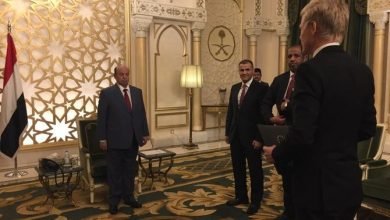Coercing Compliance: The Houthis and the Tribes of Northern Yemen

Friday 06 November 2020
SMA News – Yemen
By\ Adel Dachila – Yemeni writer and academic researcher with a PhD in English Literature.
Yemen’s northern tribes and the Houthi movement have shared a long and tumultuous political history. The Houthis recognize the political utility of the northern tribes’ support, and Houthi leadership has engaged in significant efforts to control the tribes and manipulate their traditional frameworks for political influence. As a result, a block of Yemen’s northern tribes currently fights under Houthi control. But the loyalty of the tribes is not a given, and Houthi methods of tribal control may ultimately backfire, leaving the Houthi movement friendless in a hostile environment. In any case, this interruption in the tribally defined social fabric of northern Yemen will certainly have profound and violent consequences, and stakeholders should be aware of these changing social dynamics.
First, it is critical to understand the differences between the Houthi movement and the northern tribal groups. The Houthi movement is an armed religious movement whose ideology supports narrow rule by a particular class called the “Bani Hashim”—a group that calls itself Ahl al-Bayt, or “descendants of the Prophet’s family”. Many in the north believe the Houthi movement seeks to revive the imamate that the Yemeni revolutionaries overthrew in 1962, employing a sectarian religious mindset and often violence to achieve its goals. By contrast, the Yemeni agricultural tribes, tied together by kinship and economic interests, are seldom inclined to violence except in self-defense.
Currently, the Houthi movement controls the leadership of several tribes, the product of a long history of political manipulation. Those tribes include, Hashid, Bakil, Lahnum, Khawlan, Raymah, and other tribes where the Houthis appointed new leaders for many of these tribes and imposed them on the tribe. Therefore, the Houthis became the ones in control of the tribal scene since they have long been aware of the importance of the tribes for securing political influence in Yemen, serving as a crucial element in the failure of the Yemen’s 1948 revolution and the success of the revolutions in 1962 and 2011.
Understanding the importance of tribal support, the Houthis have pushed to disrupt the traditional tribal political system by appointing overseers from the Bani Hashim class to tribe-related positions of authority inside and outside the government. The Hashemite Houthi supervisors became the primary officials for tribal affairs, and their authority became greater than that of the tribes’ traditional leadership or that of institutional government authorities. Initial tribal support for the Houthi movement was partially a product of their alliance with former Yemeni president Ali Abdullah Saleh, whose patronage networks allowed him to gain influence in northern Yemen.
The relationship between former President Saleh and the Houthis was temporary. Saleh wanted to manipulate the Houthi movement to settle his political scores with the political forces, both partisan and tribal, that opposed his regime and led to his ousting. Therefore, Saleh instructed the tribes loyal to him to help the Houthis, especially during the Houthis storming of the governorates of Amran and Sana’a. Indeed, some of these loyal tribes helped the Houthi movement until they took the capital, Sana’a.
Moreover, the Houthis chose to weaken the tribal structure’s political clout after largely failing to convincing the tribes of the Houthi ideological cause. In 2014, the Houthis appointed Daifallah Rassam of the Haydan District, a cultural and military stronghold of the Houthi movement, as head of the Houthi movement’s Tribal Cohesion Council. His appointment did not adhere to recognized tribal rules and regulations, and he was installed by force and without tribal approval.
Usually, tribal Sheikhs are appointed unanimously through a tribal meeting. This practice was dominant among the tribes of Hashid, Bikil and other Yemeni tribes. However, the Houthis undermined those practices and altered the appointment mechanism to serve their goals.
After their entrance into the capital city, Sana’a, on 21 September 2014, which resulted in the takeover of the city, the Houthis granted economic concessions to the new sheikhs they appointed over the tribes in the tribal districts and villages. The Houthis allowed those sheikhs to subject those who resisted the Houthi ideology to imprisonment, abduction, or even liquidation if they rejected the directives of the movement’s leadership, as happened to Sheikh al-Sakani, Qashirah, and Sultan al-Warwari, all from the governorate of Amran. This style of oppression is foreign to tribal customs.
All the while, the Houthis have adopted a policy of pitting tribes against each other and intentionally avoiding the creation and/or implementation of solutions to tribal issues, since resolving tribal disputes does not serve their interests. To implement this strategy, the Houthis entrusted tribal issues to unimportant tribal figures affiliated with them. In effect, the Houthis have ensured that there is no charismatic tribal leadership with the intelligence, statesmanship, and understanding of tribal customs necessary to solve such tribal problems through the classic methods of dialogue and arbitration. As a result, the fragmented tribes have been unable to join forces to form a united front against the Houthis.
In more direct acts of suppression, the Houthis have used excessive force to terrorize prominent tribes such as the Hashid, Bakil, Khawlan, Hamdan, and Arhab, singlehandedly fighting them one by one. This made the defeat of the tribes easy for the Houthis, who offended certain tribal leaders and blew up their homes. In addition, Houthi fighters blew up political party headquarters and local places of worship. These attacks terrorized the tribes while ultimately ensuring their passive reception of the Houthis. The Houthis were often able to co-opt pacified relations with the tribes through non-aggression pacts that allowed peace between the two parties without creating an official alliance.
In this way, the Houthis were able to divide and anger the tribes until they could be successfully militarized and exploited. Once the Houthis took control of governmental, educational, and religious institutions, they could more ably consolidate their religious authority among the tribes and convince them that Houthi theocratic power was the only way to stability, development, and coexistence, and that political pluralism would only lead to disagreements and destruction, as noted in the tenets of Hussein al-Houthi, the founder of the Houthi movement.
To ensure the loyalty of the next generation, the Houthis have converted tribal councils to quasi-religious centers to disseminate their ideology. In these centers, the study of the tenets of Hussein al-Houthi, the founder of the movement, is compulsory for students, teachers, tribal sheikhs, and even university professors. The Houthis arrange cultural courses to educate all these groups, and anyone who opposes these activities is immediately chastised. These practices constitute a dangerous threat to the future of the tribes, as the Houthis seek to wash away the traditional cultural tribal identity based on co-existence, respect for documents and charters, and fair play.
To legitimize their actions against the tribes, the Houthi movement used a “tribal honor document,” proclaimed in 2015, that provided for the seizure and confiscation of the property of anyone opposing their movement. The document was implemented by military force, and the head of the movement’s so-called Tribal Cohesion Council stated that those who do not fight with the Houthis would be forced to do so. Those who refuse would be used as human shields under the so-called “tribal tax,” meaning that every sheikh or member of the tribe must provide financial support, and one member of his family must fight with the movement. As with the Houthis’ other tribe-related measures, this document violates recognized tribal customs and traditions—the tribes do not force anyone to fight.
Currently, the tribes now fighting under Houthi control fall into three basic groups. The majority are the pragmatists; they fight for the Houthis in part because of the Houthis’ exploitation of their tribal dignity and pride in the face of coalition air strikes on civilians and Gulf regimes’ past histories of intervention in the region. The pragmatists, however, are mostly waiting for the opportune moment to rebel against the Houthis, and their loyalty is practical, not passionate.
The second group is ideological and holds absolute loyalty to the Houthi ideology. Most members of this group have been killed in past (2004-2010) and current wars.
The third group is compelled to send their sons and relatives to fight in the Houthi ranks in order to obtain certain gains, such as weapons, money and sustenance. Those fighters are not free in any case, but they are rather driven by their needs to do so. However, this group is forced to fight through Houthis’ threats of kidnapping and confiscation of property against those who refuse the movement’s orders.
Ultimately, the Hashemite Houthi movement will find itself alone due to its coercion of the tribes, just as the leaders of the imamate found themselves alone after they went to war with the tribally-backed republican regime from 1962-1970. The Houthi movement has no real allies won without the mechanism of tribal oppression, abuse, or insult. In the meantime, political and military support for the tribes from the Yemeni state does not appear likely in the near future.
As such, any change will rely on the possibility for a tribal awakening induced by Houthi discrimination against tribes as slaves that God has subjugated to the Ahl al-Bayt. Indeed, the movement practices discrimination even in cemeteries by distinguishing the graves of its Hashemite leaders from those of tribal members who died fighting with the Houthi movement in its ongoing battles. This view of the tribes as inferior is a guarantee that the Houthis will not continue to exclusively rule these tribal areas in the long term.
Even so, the Houthis’ current control of the region will have its long-term effects. Continued Houthi rule over northern Yemen will lead to the division of the tribes into conflicting parties and rival cantons. The social fabric and civil peace will be exposed to an unprecedented threat, not only for the Yemeni people, but for the countries of the region as a whole. This danger will extend to international peace and security. The ongoing disintegration of these key social ties is just one more reason to end the untenable status quo in Yemen through the implementation of Security Council resolutions related to the conflict. Analysts and stakeholders must take into account the changes in the Yemeni tribes, at least after the fallout of the Arab Spring and the fall of Sana’a. A solution to Yemen’s issues requires new in-depth studies into the tribes’ way of thinking, approaches, and culture that works to adapt and respond to these recent transformations.








